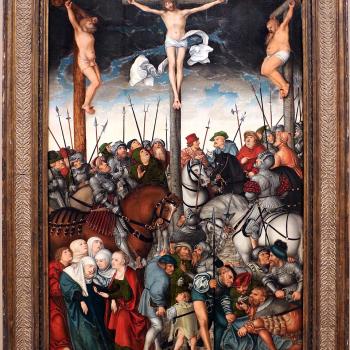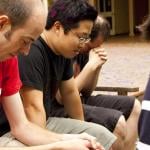Some Protestants are calling for a “new monasticism,” the establishment of communities and religious orders devoted to prayer and the spiritual life.
This movement first manifested itself among “progressives,” featuring a big dose of leftist political activism and being reminiscent, really, of the Christian “communes” of the 1960s. See The Twelve Marks of a New Monasticism.
But now, though the “new monasticism” is associated with the Emergents, some of its adherents are getting in touch with the serious business of what monks and nuns do: Praying the “hours,” the liturgies of the “daily offices” held every three hours around the clock, and cultivating spiritual disciplines such as celibacy. See Clifton Stringer’s Monky business: Church growth and/or new monasticism.
Now I know for a fact that there is an order of Lutheran nuns in Germany. (They operate some of the Luther sites.) And there are some orders of Anglican monks and nuns, both in England and in the United States. UPDATE: I’m reminded that there is a Lutheran monastery in Michigan, with LCMS ties: St. Augustine’s House.
Praying the Daily Offices (Matins, Vespers, Compline, etc.) is a fine practice. (You can find them in the Treasury of Daily Prayer.) And the Lord knows people in our culture would do well to cultivate self-discipline of every kind. And it’s hard to have a very liberal theology when you are devoting your life, or at least much of your time, to prayer.
These Protestant versions don’t seem to require life-long vows (someone correct me if I’m wrong–the older Anglican and Lutheran orders might), and they are apparently open to married couples and to people who just want to try it for awhile. Clifton Stringer, in the essay linked above, is calling for actual full-time nuns and monks, so it doesn’t sound like there are actual religious orders yet.
And yet, I get the sense from some of the writing on the subject that this new monasticism constitutes a superior spiritual way, that this is “full time Christianity” in a sense that spending time with your spouse, raising children, and working at a regular job is not. That is to say, I worry that it is blind to the doctrine of vocation.
But what do you think about this? Can there or should there be a Protestant monasticism?
















